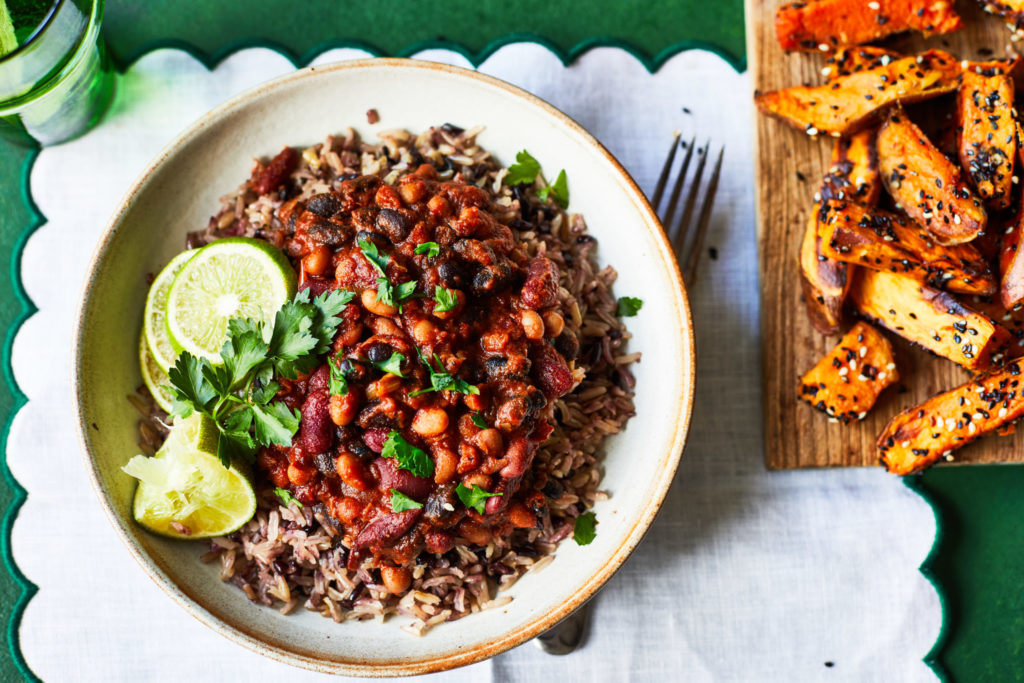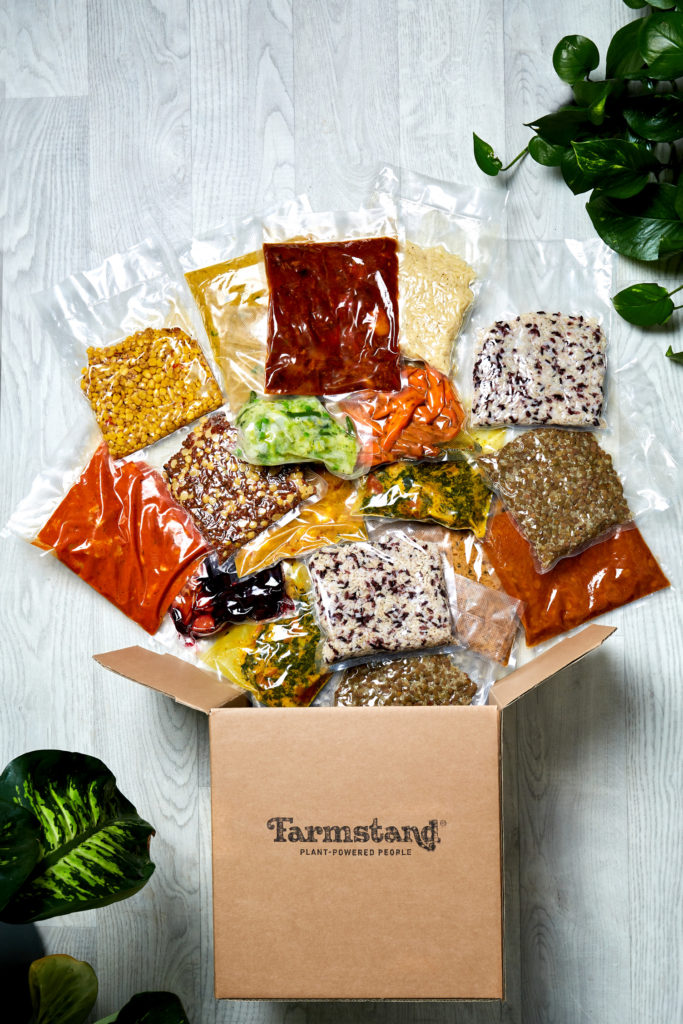If you remember the buzz and hustle of working in central London, you might recall Farmstand, the innovative B2B2C plant-powered meal business that until March last year operated a central kitchen in Deptford, a restaurant “showroom” in Covent Garden and 12 workplace concessions across the capital.

Farmstand’s unique model batch-cooks centrally to order and uses a space-, cost- and carbon-efficient vacuum pouch format that’s cooked “sous-vide” in five minutes for perfect flavour for just £5 per person.
When the UK government announced the first stay-at-home order last March, Farmstand founder Steven Novick saw the writing on the wall. As a serial tech entrepreneur, he knew that crowded offices would come back slowly, if ever. He also knew that lockdown would accelerate consumer shifts like veganism, delivery apps, and the atomisation of grocery shopping. So he took the decisive action to shutter the showroom, close all concessions and pivot to offer Farmstand’s meals on a DTC (direct to consumer) basis.
He sold his house in May, raised $1m in crowd funding in October and relaunched Farmstand in February as a digital- and subscription-only model via www.eatfarmstand.co.uk
The essence of the food remains: a curated meal with nutritionally-balanced base, main and side dishes, cooked to order and vacuum sealed in pouches that can be bulk-shipped, and refrigerated or frozen in a fraction of the space that frozen meals take up.
Novick says this is a key part of the plan to make healthy, convenient meals more accessible to more people. “I grew up working class and I know how many hidden barriers there are for people to eat healthy. That’s why affordable pricing (under £5 per meal), compact storage, and fast prep are key to the Farmstand offering, alongside the exceptional health credentials.”
Health is fundamental to Farmstand and to Novick personally. He credits his own diet overhaul 15 years ago with helping him beat cancer and has been a committed vegan ever since.
That’s one key change Farmstand has made in its pivot to DTC: It is now flexitarian, with 65% of the menu fully vegan and 80% vegetarian. “We call it ‘plant-biased’, says Steven. “The vegan trend masks a more profound and widespread move to put more plants on the table. That’s a much bigger addressable market. We can meet people where they are and help them go on that journey.”
All ingredients, including meat and fish, are sourced sustainably and meals are designed to the highest nutritional and taste standards by Head of Food Scott Meaden, who has worked as a michelin-starred chef and consultant across the industry. Ingredient partners include Yeo Valley™, Meatless Farm and THIS™. Recipes are continually tweaked based on feedback and new combinations and meals added regularly with weekly specials launching in May.
Equitable business values have always been part of the Farmstand story: The company is a certified London Living Wage employer, the entire team owns equity, pending B-corp certified, zero-carbon and ½ of the Board has always been women. But to Novick, these are now table stakes and the pivot has pointed the company in the direction of a bigger mission.
“Obesity, food poverty and poor nutrition are epidemics in the UK, the US and other major markets. The stand we’re taking is about getting good, healthy food onto more tables in the smartest way possible,” he says. “That’s what our business model enables. It’s also capital efficient and globally scalable.”
Two months in, Farmstand has a fast-growing subscriber base which is more than doubling every month. Will the easing of lockdown in the UK slow this? Novick doesn’t think so.
“We’re not trying to be another over-branded, over-packaged, over-priced delivery service targeting affluent diners stuck at home. The problem Farmstand solves–how to put a healthy, appetising meal on the table quickly without costing the earth–is only going to grow as people’s busy lives start up again.”
Novick–and Farmstand–are ready.
Source: Farmstand




You must be logged in to post a comment Login